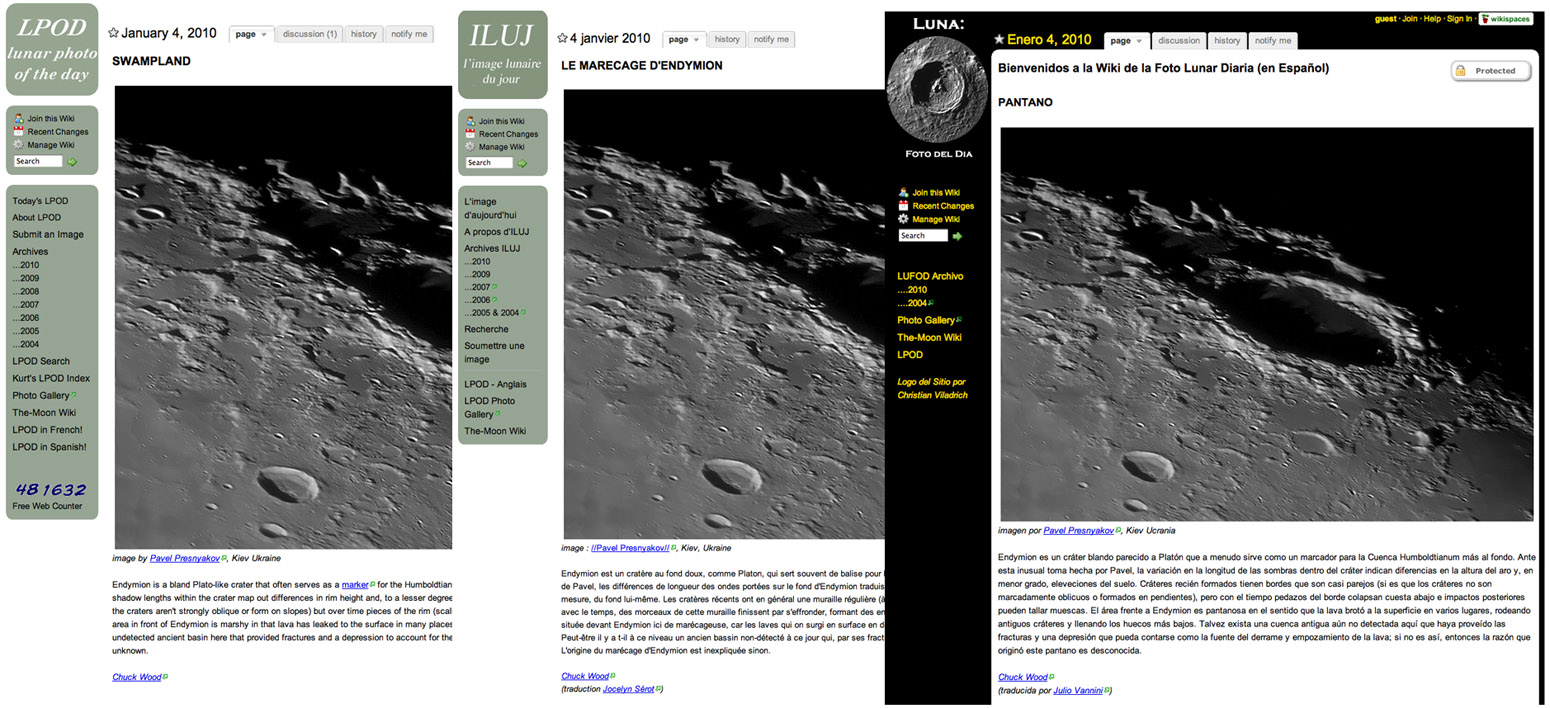March 16, 2019
One Becomes Three
Originally published January 5, 2010

Most of the world doesn't know enough about the Moon. Most of the world doesn't speak English*. One of those statements is definitely true,
and the other is my opinion, but Jocelyn Sérot of France and Julio Vannini of Nicaraua agree. The strength of their belief is demonstrated day
after day - at least since September 1, 2009 for ILUJ and Jan 1, 2010 for LUFOD - by volunteering their efforts to translate LPOD into French and
Spanish. Both Jocelyn and Julio are amateur astronomers interested in the Moon, of course, and anxious to help speakers of their languages
share their passion for the Moon. About five years ago LPOD was also available in these three languages (due to the wonderful translations of
Christian Legrand and Lonnie Pacheco) and I am very happy that it is again. To make these new French and Spanish versions of LPOD
successful will require the help of all LPOD readers in spreading the word that the world's best lunar images, and interesting commentary, are
available every day in these languages. Now if we can get versions in Chinese, Hindi, Arabic, ... much of the world could add lunar to the list
of things they understand.
Chuck Wood
Technical Details
- Estimates are 0.5 to 1.8 billion English speakers
Yesterday's LPOD: Swampland
Tomorrow's LPOD: Hemisphere
COMMENTS?
Register, Log in, and join in the comments.



